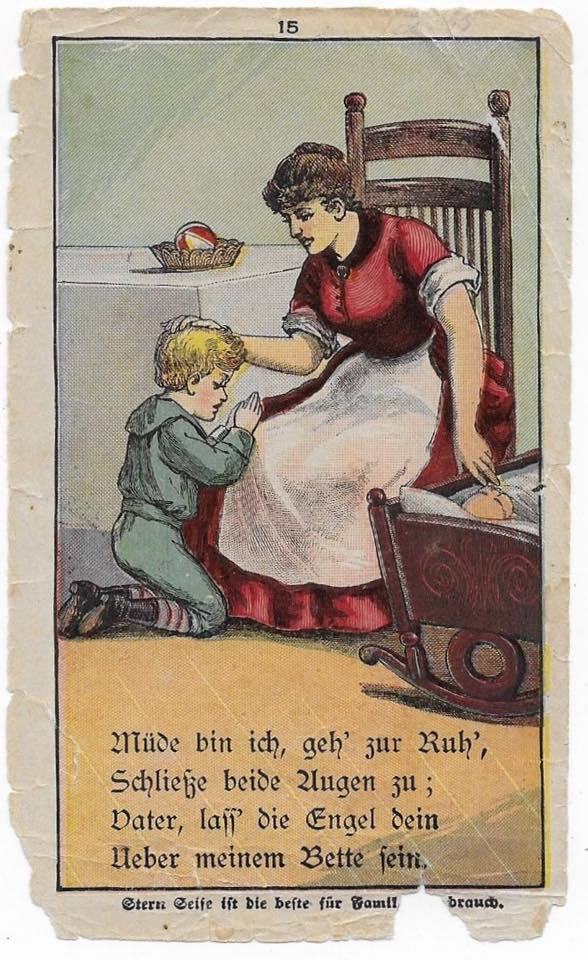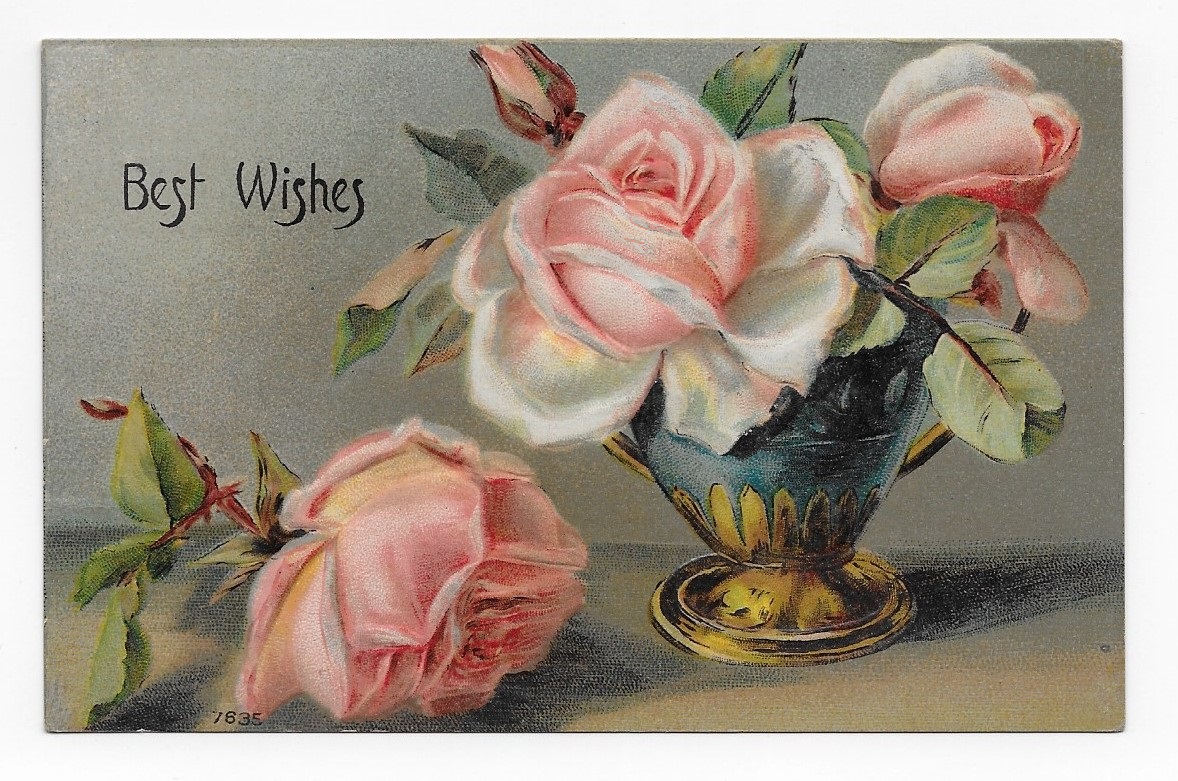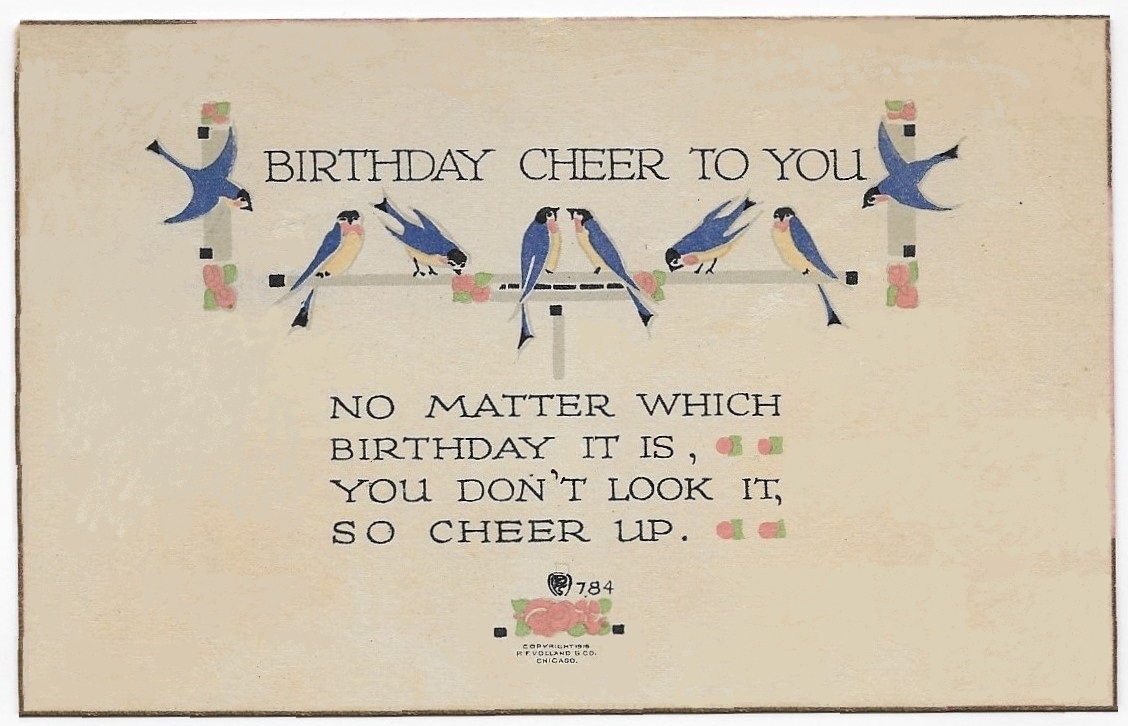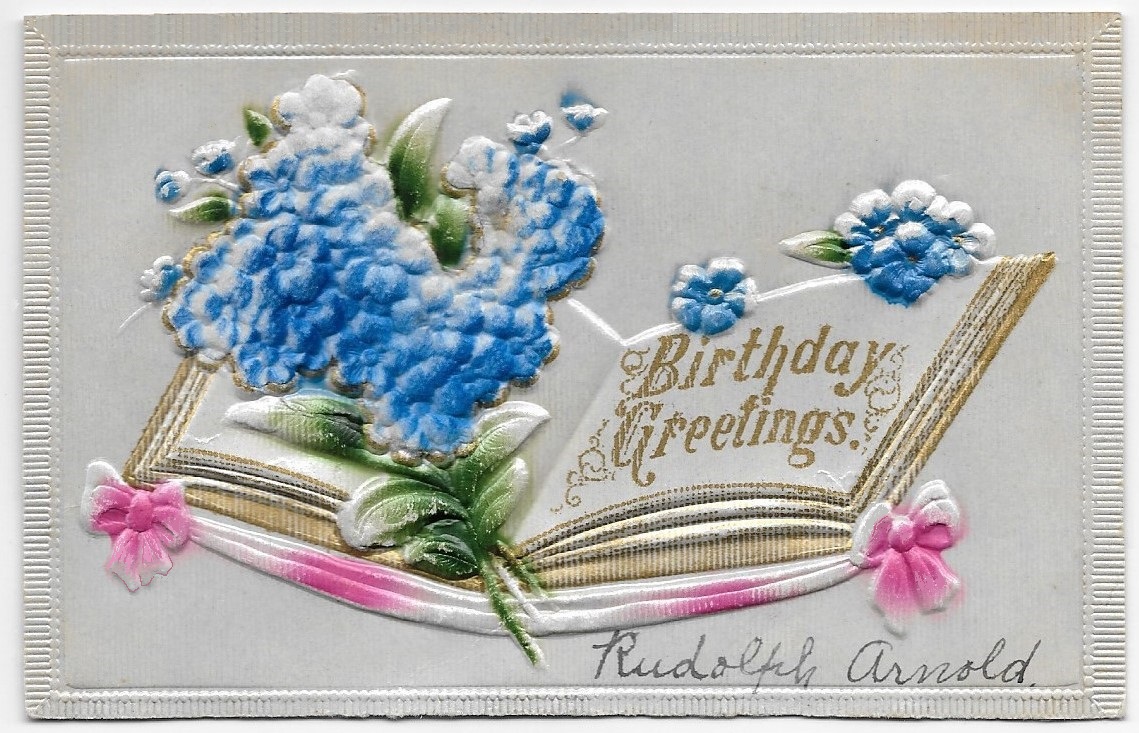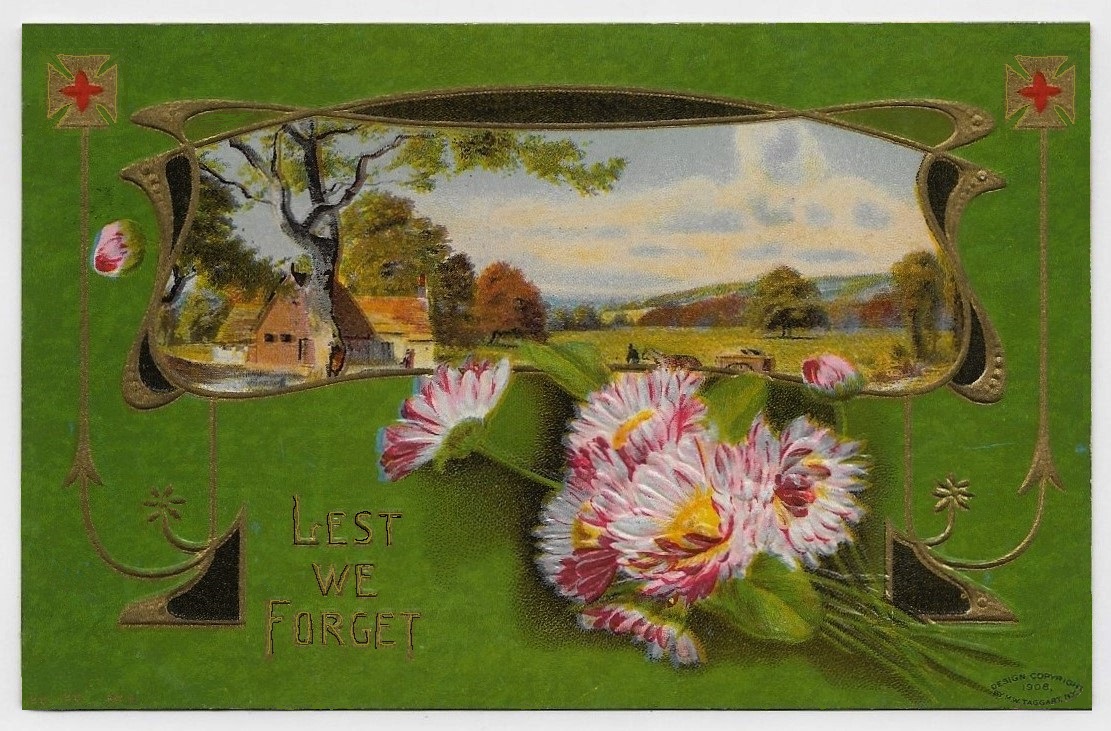This very thin and fragile paper was printed as an advertisement for Star Soap.
The reverse has a familiar English bedtime prayer that most readers will know. I will post it another time.
That the advertisement is in German reflects the depth and durability of the German language in the United States.
Until World War I, German was spoken by more people in the US than any other non-English language.
Many cities with large German populations had churches, publishing houses, businesses, and civic organizations that conducted their work in the German language.
The verse was written by Luise Hensel, daughter of a Lutheran pastor, and first published in 1842.
(The very interesting life of this talented woman is included in a link.)
This verse for children has an interesting history of translation.
It appeared widely in hymnals among Lutherans, German Reformed, and Mennonite congregations.
Various translations often adopted very different tones that reflected the theological and sentimental preferences of different audiences.
There is a great deal of literary, cultural, and theological discussion of this prayer on-line; the history, by a professor at a Mennonite College in Canada, is most informative.
Here is one good translation:
“Weary now, I go to rest,
Close my eyes in slumber blest.
Father, may Thy watchful eye
Guard the bed on which I lie.”
